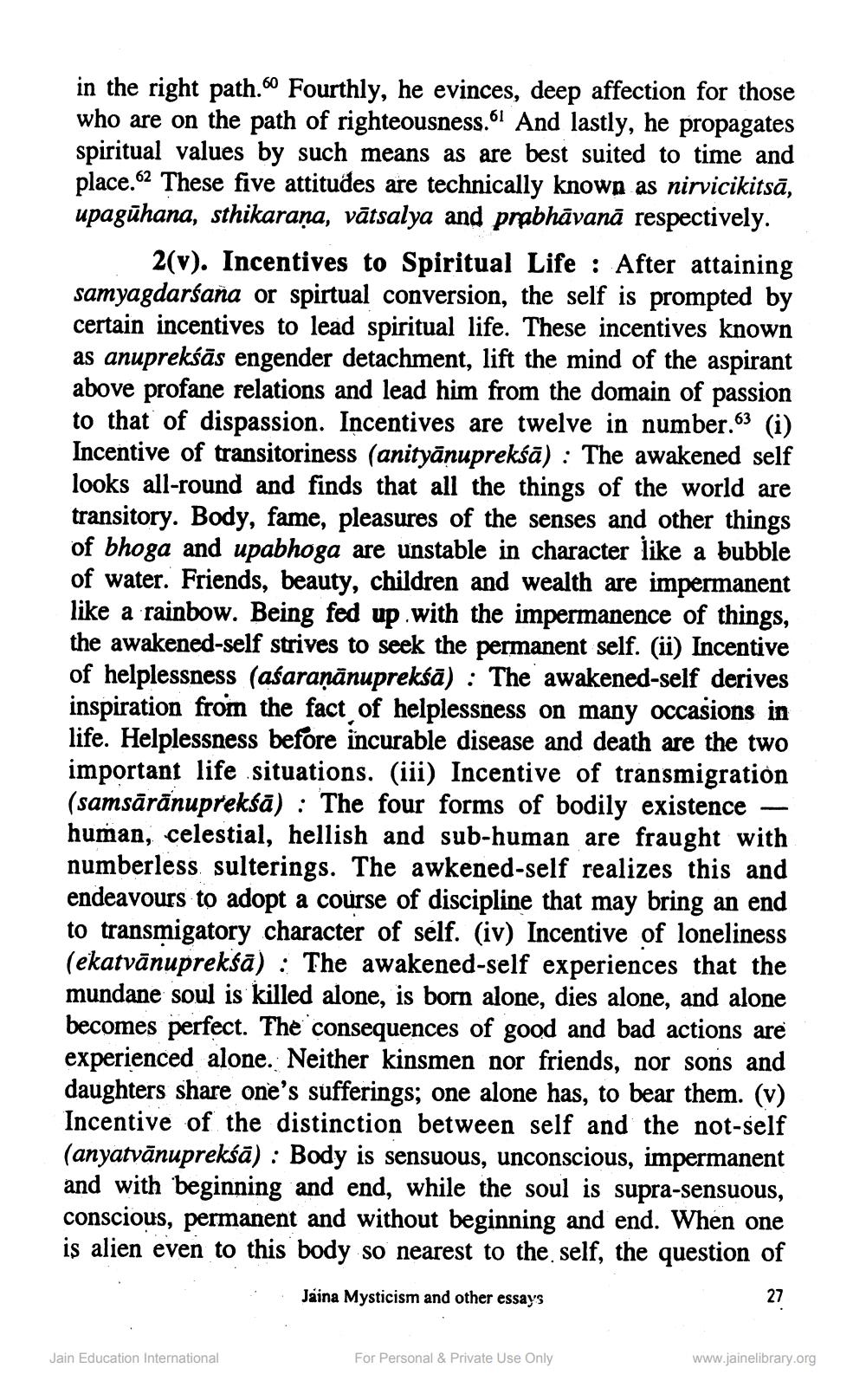________________
in the right path. Fourthly, he evinces, deep affection for those who are on the path of righteousness. And lastly, he propagates spiritual values by such means as are best suited to time and place.62 These five attitudes are technically known as nirvicikitsā, upagūhana, sthikarana, vātsalya and prabhāvanā respectively.
2(v). Incentives to Spiritual Life : After attaining samyagdarśaña or spirtual conversion, the self is prompted by certain incentives to lead spiritual life. These incentives known as anuprekśās engender detachment, lift the mind of the aspirant above profane relations and lead him from the domain of passion to that of dispassion. Incentives are twelve in number.63 (i) Incentive of transitoriness (anityānuprekśā) : The awakened self looks all-round and finds that all the things of the world are transitory. Body, fame, pleasures of the senses and other things of bhoga and upabhoga are unstable in character like a bubble of water. Friends, beauty, children and wealth are impermanent like a rainbow. Being fed up with the impermanence of things, the awakened-self strives to seek the permanent self. (ü) Incentive of helplessness (aśaraṇānuprekśā) : The awakened-self derives inspiration from the fact of helplessness on many occasions in life. Helplessness before încurable disease and death are the two important life situations. (iii) Incentive of transmigration (samsārānuprekśā) : The four forms of bodily existence – human, celestial, hellish and sub-human are fraught with numberless sulterings. The awkened-self realizes this and endeavours to adopt a course of discipline that may bring an end to transmigatory character of self. (iv) Incentive of loneliness (ekatvānuprekšā) : The awakened-self experiences that the mundane soul is killed alone, is born alone, dies alone, and alone becomes perfect. The consequences of good and bad actions are experienced alone. Neither kinsmen nor friends, nor sons and daughters share one's sufferings; one alone has, to bear them. (v) Incentive of the distinction between self and the not-self (anyatvānuprekśā) : Body is sensuous, unconscious, impermanent and with beginning and end, while the soul is supra-sensuous, conscious, permanent and without beginning and end. When one is alien even to this body so nearest to the self, the question of
Jaina Mysticism and other essays
27
Jain Education International
For Personal & Private Use Only
www.jainelibrary.org




